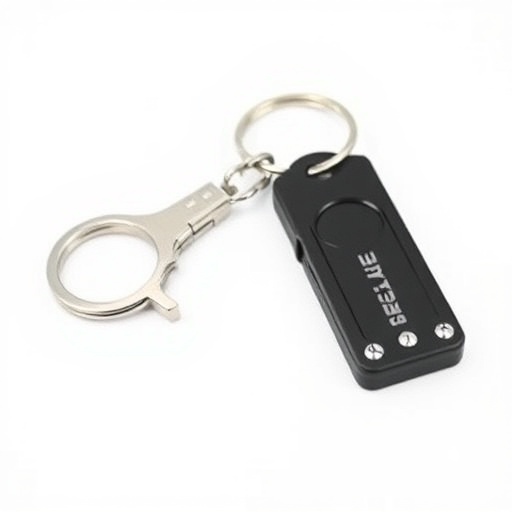Carrying a metal keychain self-defense tool for personal safety requires understanding local laws defining "self-defense" and "weapon," with "reasonable force" varying by region. A metal keychain, though not inherently a weapon, can be classified as such based on intent and context. When choosing a tool, prioritize effectiveness, discreet design, durability, and adherence to legal requirements, carrying it responsibly as a last resort. Despite limitations, the metal keychain self-defense tool offers a compact, discreet option for personal safety, especially beneficial for women in unfamiliar environments.
“Uncover the power of self-defense in your pocket with metal keychain self-defense tools. In today’s world, understanding legal definitions is crucial for responsible citizens. This article explores what constitutes a legitimate self-defense weapon, guides you through choosing the right metal keychain tool, and delves into carrying and using it legally. We also weigh the benefits and limitations, ensuring you make an informed decision about this compact yet potent personal safety device.”
- Understanding Legal Definitions: What Counts as a Self-Defense Weapon?
- Choosing the Right Metal Keychain Self-Defense Tool
- Carrying and Using Your Keychain Self-Defense Device Legally
- Benefits and Limitations: Is a Metal Keychain Self-Defense Tool Right for You?
Understanding Legal Definitions: What Counts as a Self-Defense Weapon?
In many jurisdictions, the concept of self-defense is a fundamental right, but defining what constitutes a legitimate self-defense weapon can be complex. When considering a metal keychain self-defense tool as an option, it’s crucial to understand the legal definitions and interpretations of “self-defense” and “weapon.” Legally, self-defense refers to using reasonable force to protect oneself or others from harm, but what constitutes ‘reasonable’ and ‘force’ varies by region.
A metal keychain self-defense tool, often designed with a sharp edge or point, might be considered a weapon under certain circumstances. The key is whether the object is used for the purpose of causing harm or as a last resort to protect oneself or others from imminent physical harm. Not all metal keychains are inherently weapons; their classification depends on intent and context. Understanding these nuances is essential when considering legal self-defense options, ensuring that your chosen tool aligns with the definitions set by local laws.
Choosing the Right Metal Keychain Self-Defense Tool
When selecting a metal keychain self-defense tool, the first consideration is its effectiveness as a weapon. Look for tools with sharp, robust edges designed to cause significant harm in an emergency. The size and weight should also be suitable for easy carrying, ensuring you have it readily available when needed.
The best option will strike a balance between functionality and discretion, allowing you to attach it securely to your keys or bag without drawing undue attention. Consider the material; high-quality metal alloys offer durability and strength, making them ideal for self-defense purposes. Always choose a tool that feels comfortable in your hand, enabling confident and precise use when facing a dangerous situation.
Carrying and Using Your Keychain Self-Defense Device Legally
Carrying a metal keychain self-defense tool legally involves understanding and adhering to your region’s specific laws. In many places, personal defense devices are legal as long as they aren’t designed or capable of causing serious harm. Always check local legislation to ensure your chosen device falls within these guidelines. Some jurisdictions may require registration or permit carrying certain types of self-defense tools, so it’s crucial to be informed.
Using such a device for self-defense should be a last resort and only when facing an imminent threat. It’s essential to act responsibly and proportionately; using excessive force is illegal and could result in severe consequences. Practice proper handling techniques and keep your keychain tool easily accessible but discreet, especially in public spaces. Regularly updating yourself on legal requirements ensures you remain compliant and can protect yourself effectively if needed.
Benefits and Limitations: Is a Metal Keychain Self-Defense Tool Right for You?
A metal keychain self-defense tool is a compact and discreet option for personal safety, offering several advantages in specific situations. Its small size makes it easy to carry on your keys or even in a pocket, ensuring you’re always prepared. This weapon can be a powerful deterrent against potential attackers, providing users with a sense of security while alone or in unfamiliar environments. The convenience of having a self-defense tool readily available is especially beneficial for women who often face higher personal safety risks.
However, there are limitations to consider. The effectiveness of a metal keychain self-defense tool relies heavily on the user’s skill and strength, as well as the proximity of an attacker. It may not be suitable for all individuals, particularly those with limited mobility or physical disabilities. Moreover, its small size can sometimes make it challenging to land precise strikes, especially in intense situations requiring quick reflexes. Despite these drawbacks, for those seeking a simple, portable self-defense solution, a metal keychain tool can be an attractive and practical choice.
When considering a metal keychain self-defense tool, understanding legal definitions, choosing the right device, and being aware of carrying and usage guidelines is essential. These compact tools can offer peace of mind in potentially dangerous situations, but it’s crucial to know their benefits and limitations. If you decide a metal keychain self-defense tool is right for you, ensure you stay informed about local laws and use it responsibly.
